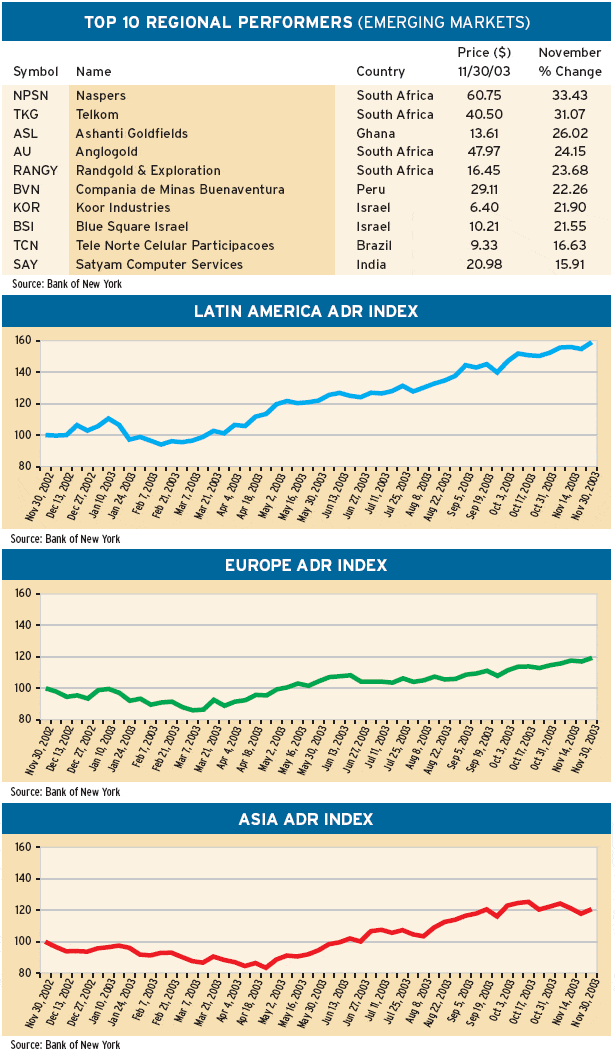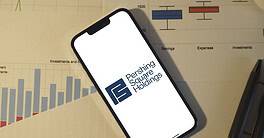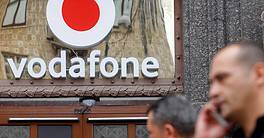THE AMERICAS
In recent weeks, class actions were filed against French, Australian and Israeli companies. Other cases were filed in 2003 against companies in Hong Kong,Germany, the UK and the Netherlands.
The main trend emerging from the majority of the cases filed has been an increase in the number of accounting-related complaints filed, says Grace Lamont, partner in the New York Securities Litigation Group of PricewaterhouseCoopers.
More than half of the cases against foreign companies in 2003 contained accounting allegations, although this was down from 77% in 2002.
In recent years there has been an increased focus, both by US regulators and private litigants, on foreign companies listed on US stock markets, Lamont says.
In addition to complying with their own local accounting rules and requirements, foreign registrants must also be expert in applying US generally accepted accounting principles, or GAAP, she says.
If a foreigner issuer wishes to retain its homemarket accounting and disclosure standards, it can have its securities traded in the over-thecounter market or on the National Association of Securities Dealers PORTAL among qualified institutional buyers.
PricewaterhouseCoopers study says 13 foreign companies were sued in US shareholder class actions last year, down from 22 in 2002.
Chilean Bank Places ADRs
Corpbanca, Chiles sixthlargest bank, raised $230 million with the sale of a 23.3% interest in the company. Half of the shares were placed in the US market as American depositary receipts under Regulation S.
Bank of New York is the depositary for the sponsored ADR program. Each ADR is equivalent to 5,000 of the banks ordinary shares.
In November 2002 Corpbanca became the first company to list on the emerging companies section of the Santiago Stock Exchange.The bank focuses primarily on retail banking.
Regulation S sets rules governing offers and sales made without registration with the US Securities and Exchange Commission.
Moodys Investors Service in August 2003 withdrew all of its ratings for the bank at the request of the company.
JPMorgan Crosses Argentine Issues
JPMorgan Liquidity Solutions Group has added Argentina to its ADR cross-book platform, known as ADR MAX.
JPMorgan says it can now cross Argentine ADRs with their corresponding ordinary shares using the system.
With the addition of Argentina, the ADR MAX platform now crosses issues from 17 countries.
EUROPE BERU of Germany Starts Level-1 ADR
Ludwigsburg, Germanybased BERU, which makes ignition systems for motor vehicles and furnaces, appointed Deutsche Bank as depositary for a sponsored Level-1 American depositary receipt program.
Two ADRs are equivalent to one BERU ordinary share.The ADRs trade in the US over-the-counter market.
We see the North American market as increasingly important in operational terms, says Marco von Maltzan, CEO of BERU.We anticipate that the ADR program will lead to higher trading volumes and further raise the name recognition of the BERU brand in the US, he says.
BERU also makes sparkplugs, ignition coils, cables, and tire-pressure gauges and sensors, as well as heaters for automobile interiors.
NYSE Suspends Pechiney ADRs

The New York Stock Exchange suspended trading of French aluminum producer Pechineys American depositary receipts on November 25, 2003, following the expiration of Alcans tender offer for Pechineys shares.
About 3.3 million out of 3.5 million of the French companys ADRs were tendered, according to Bank of New York.
The NYSE said it normally considers suspending trading when a companys outstanding ADRs are fewer than 600,000. Pechiney finally agreed to a $4.5 billion buyout offer from Alcan in Sep- tember 2003, after turning the company down on two previous occasions.
Alcan reopened the offer in December to enable Pechiney shareholders who did not tender their securities to take advantage of the offer.
ASIA Indian Paper Maker Launches Program
Deutsche Bank announced the establishment of a sponsored Regulation S and Rule 144A global depositary receipt program for Ballarpur Industries, a Mumbaibased paper producer.
Ballarpur is Indias largest manufacturer of writing and printing paper, with a market share of about 18% in the countrys fragmented paper industry.
The company has paper mills at four locations, as well as a pulp mill, giving it an advantage in covering a majority of the large Indian market, according to Deutsche Bank.
Ballarpur distributes its products to all parts of India, using more than 112 distributors, most of whom work on an exclusive basis for the company.
The GDRs issued under Regulation S trade on the Luxembourg Stock Exchange, while the Rule 144A issue trades on the NASDs PORTAL, which stands for Private Offerings, Resales and Trading through Automated Linkages. One GDR is equivalent to five of Ballarpurs ordinary shares.

Gordon Platt



